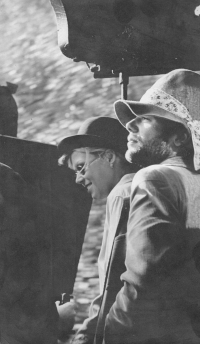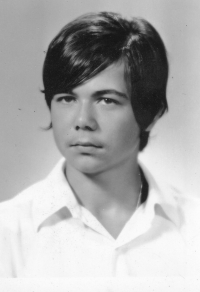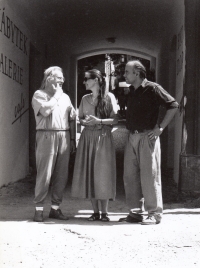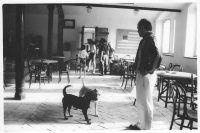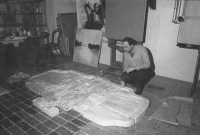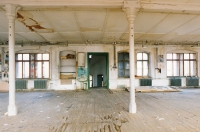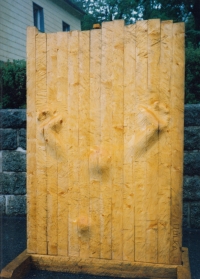From building the legendary „Hůlka“ in Liberec after the revolution to almost becoming homeless

Stáhnout obrázek
Rudolf Hůlka was born in Liberec on 25 April 1953. His father Rudolf Hůlka (born 1914) and his mother Anna Marie née Jeřábková (born 21 August 1923) also raised his three older siblings Miroslav, Helena and Hana. He attended primary school from 1959. In 1964, he and his classmate received a note and tried to run away from home for fear of punishment. They only made it as far as Chomutov. This incident is said to have dragged on with the witness until 1989, as the regime labelled the boy‘s act as an attempt to emigrate. The witness gravitated towards the fine arts. After graduating from a technical high school in Liberec, he built his own studio. He painted, sculpted and modelled. From 1980, he worked at the Naive Theatre as a puppeteer. After the Velvet Revolution, he auctioned off the former Schmidt‘s factory house in Liberec on Papírové Square, intended for demolition, as part of the small privatisation. He borrowed over three million crowns from Pragobanka to buy it. First, he opened a furniture shop with a gallery there. However, he had to close the shop due to construction work in the square. He converted the business into the RH Jazz Club. Known as „Hůlka“, the venue became a famous cultural hub in Liberec in the 1990s. He was unable to pay his debt. In 1997, the regional court declared bankruptcy on the witness‘s property. He has five children. In 2023 he was living in Liberec. We were able to film the memorial thanks to the financial support of the Nisa Shopping Centre in Liberec.
